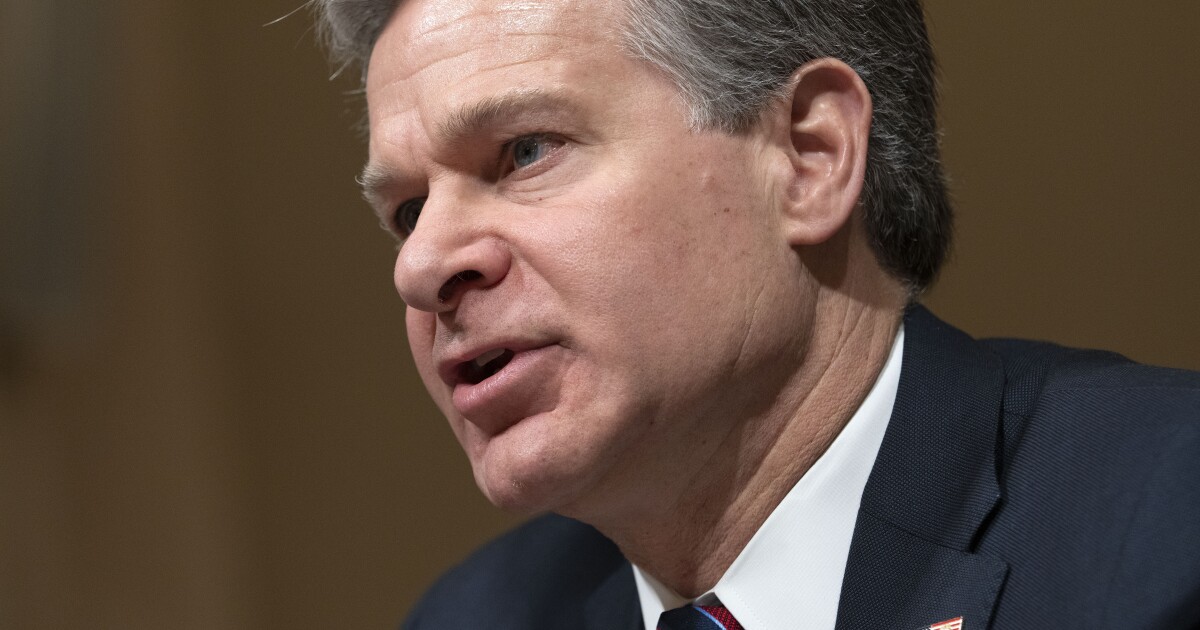

FBI Director Christopher Wray pushed Congress on Wednesday to renew a controversial portion of the Foreign Intelligence Surveillance Act that he said gives agents a critical tool for protecting the United States from foreign adversaries.
Wray called the tool “indispensable,” warning during a House Homeland Security Committee hearing that losing it would render agents blind to foreign terrorist plans and cyberattacks directed toward the U.S.
BIDEN’S BOSTON DOCUMENTS RETRIEVAL TREATED WITH ‘DISCRETION,’ NARA EMAILS REVEAL
“Imagine if some foreign terrorist organization overseas shifts its intentions and directs an operative here who had been contingency planning to carry out an attack in our own backyard, and imagine if we’re not able to disrupt that threat because the FBI’s 702 authorities have been so watered down,” Wray said.
Citing the gruesome attack by the terrorist group Hamas in Israel last month, Wray noted, “Something like 100% of our technically sourced intelligence about Hamas comes from 702. That’s just one terrorist organization.”
Section 702 of FISA will sunset at the end of this year, and several key lawmakers across the political spectrum have threatened to vote against reauthorizing it in its current form because of concerns it violates civil liberties.
The provision gives the FBI power to conduct warrantless surveillance to collect foreign intelligence information. While it is designed to surveil foreigners, declassified FISA Court documents have shown the tool was misused hundreds of thousands of times in past years. Agents, for example, inappropriately searched a database of Section 702-derived information for information related to the Jan. 6 Capitol riot and George Floyd protests.
Wray argued that corrective measures the FBI has taken have almost entirely eliminated instances of misuse, and a FISA Court ruling that was declassified this summer said it found no “violations of comparable magnitude” to those that occurred before the new measures, which were implemented in 2021 and 2022.
Despite the FBI’s internal reforms, the House Judiciary and Intelligence committees are leading efforts to modify Section 702 to address their privacy concerns and have held meetings behind the scenes to draft legislative text for it, which could be released in the coming weeks.
Numerous lawmakers questioned Wray about Section 702 on Wednesday, with some expressing their wholehearted support for cleanly reauthorizing it and others conveying their hesitancy.
CLICK HERE TO READ MORE FROM THE WASHINGTON EXAMINER
Allowing it to lapse would be “shortsighted at best and dangerous in the extreme at worst,” Wray said.
About the reforms lawmakers are weighing, such as warrant requirements, Wray said “agility and speed” are “essential” when using the tool so any added reforms that install hurdles in the process would make it “basically useless.”





